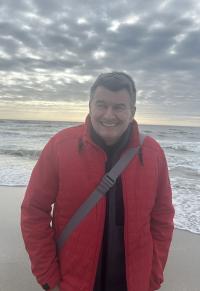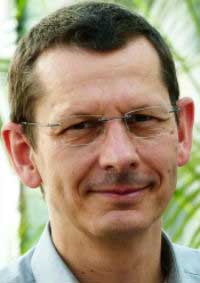Abrupt, Past and Future Climate Changes
Lecturers: Stefan Mulitza, Michael Schulz
This course introduces to the reconstruction and modeling of abrupt climate changes, provides an overview of paleo and historical climate changes (from the role of oceanic gateways in the Cenozoic through Pleistocene climate cycles to natural climate variability during the Holocene) and presents an outlook on future climate changes in response to projected anthropogenic climate forcings. Available evidence for past climate changes (from ice and marine sediment cores) as well as current climate change (from historical and instrumental data) is discussed. Computer lab exercises with conceptual climate models and results of comprehensive climate models are used throughout to investigate the processes that cause those climate changes.
The course addresses SDG 13 (climate action) by covering climate change throughout time.
- to become familiar with the reconstructed climate variations for selected time intervals of the Cenozoic
- to gain an understanding of the dynamics of abrupt climate changes
- to become able to assess the respective roles of natural and anthropogenic climate variations in past and future climate changes
oral exam
mündliche Prüfung
Alley et al.: Abrupt Climate Change: Inevitable Surprises. National Academy Press, Washington, DC, 238 pp., 2002.
Ruddiman, W.F.: Earth’s climate: past and future. W.H. Freeman, 3rd revised edition, 464 p., 2013.
1st SWS: Introduction to abrupt, past and future climate changes / Introduction to abrupt climate change
2nd SWS: Greenhouse-gas and tectonic forcing of Cenozoic climate change
3rd SWS: Pleistocene climate changes and glacial cycles
4th SWS: Dansgaard-Oeschger Cycles & Heinrich Events
5th SWS: The climate of the last glacial maximum - Glacial cooling and climate sensitivity
6th SWS: The last deglaciation
7th SWS: The Holocene
8th SWS: The climate of the last two millennia
9th SWS: Abrupt climate change and thermohaline circulation
10th SWS: Current and Future Global Climate Change / The Anthropocene
11th SWS: El Niño-Southern Oscillation / Communicating about climate change
12th SWS: Projections of future climate / Impacts of future climate change
13th SWS: Past and future sea level / Avoiding dangerous climate change
14th SWS: Avoiding dangerous climate change
Notebook-Pool
Basic Data
05-MMG-CC2-1
Study Program
Master Marine Geosciences
Module Name
Climate Change II: Models and Data
Course Type
Lecture, Exercise (L+E)
First Year of Study
6 CP
5 SWS
Summer Term
Course Language
English
Contact Person

Paläozeanographie
Dr. Stefan Mulitza
MARUM ZfT 5340R
Phone: +49 421 218 - 65536
smulitza uni-bremen.de
uni-bremen.de
Paläozeanographie
Dr. Stefan Mulitza
MARUM ZfT 5340R
Phone: +49 421 218 - 65536
smulitza uni-bremen.de
uni-bremen.deLecturer

Dr. Stefan Mulitza
MARUM ZfT 5340
Phone: +49 421 218 - 65536
smulitza uni-bremen.de
uni-bremen.de
Dr. Stefan Mulitza
MARUM ZfT 5340
Phone: +49 421 218 - 65536
smulitza uni-bremen.de
uni-bremen.de
Prof. Dr. Michael Schulz
MARUM ZfT 4270
Phone: +49 421 218 - 65444
mschulz marum.de
marum.de
Prof. Dr. Michael Schulz
MARUM ZfT 4270
Phone: +49 421 218 - 65444
mschulz marum.de
marum.de
